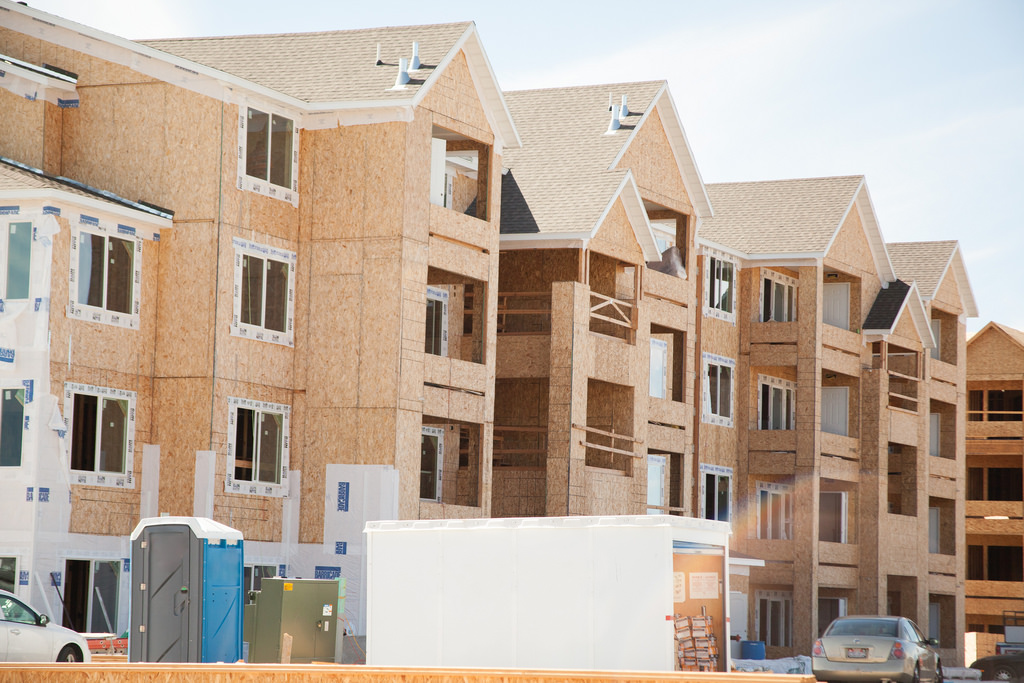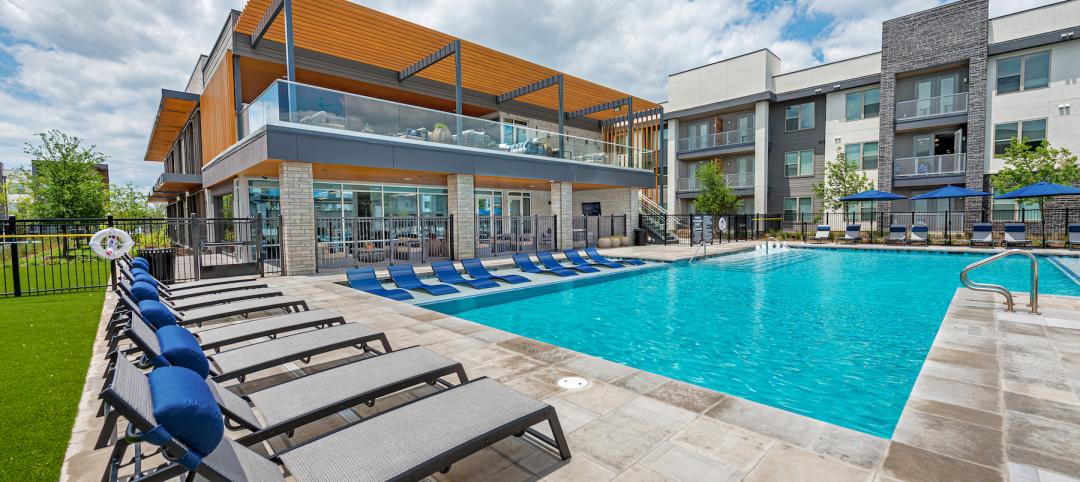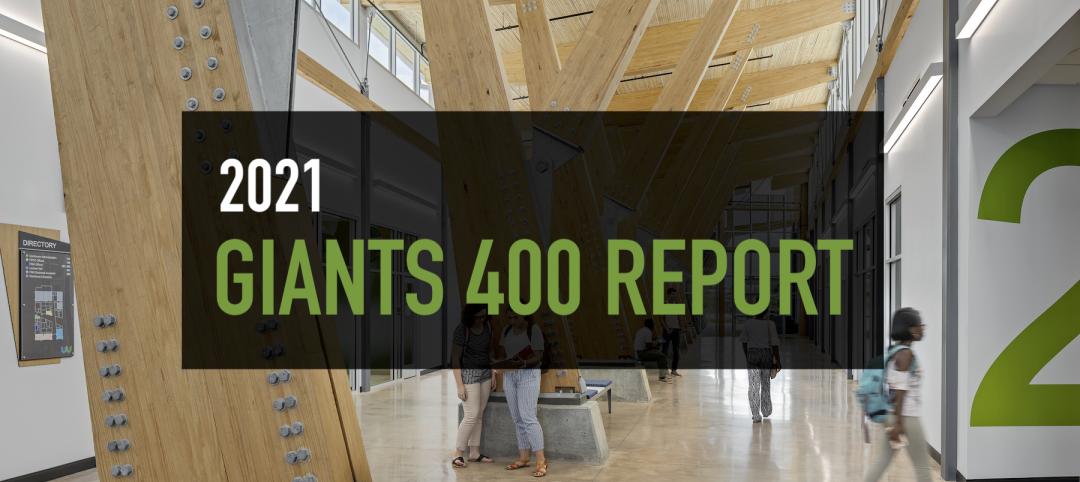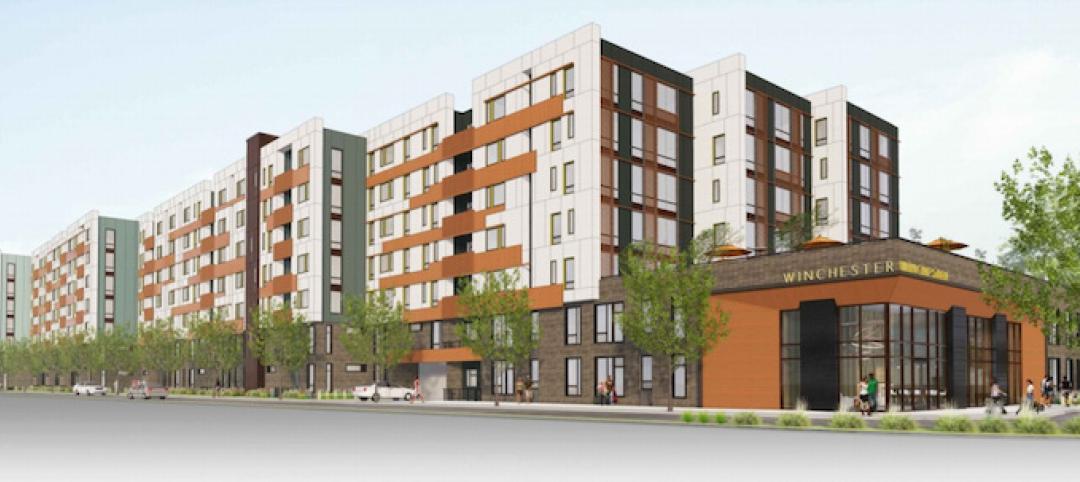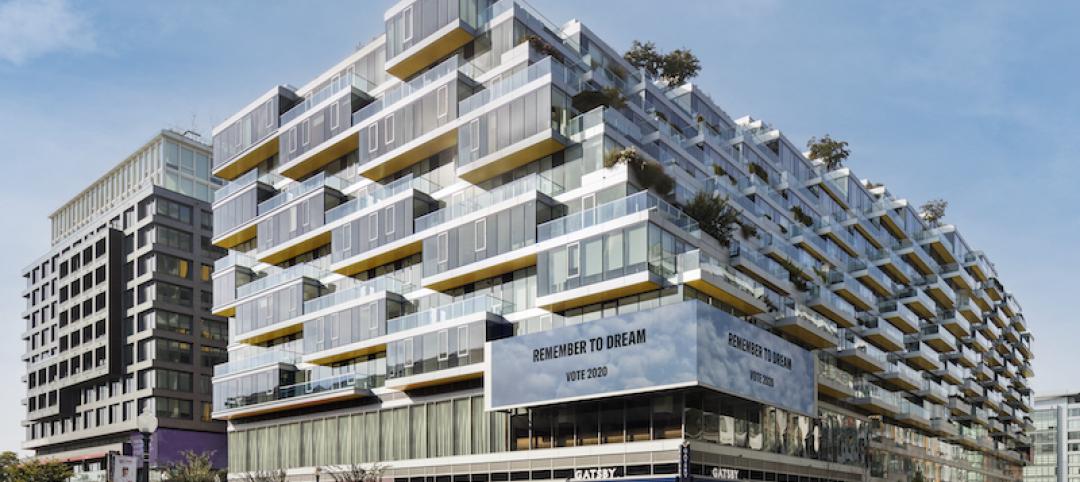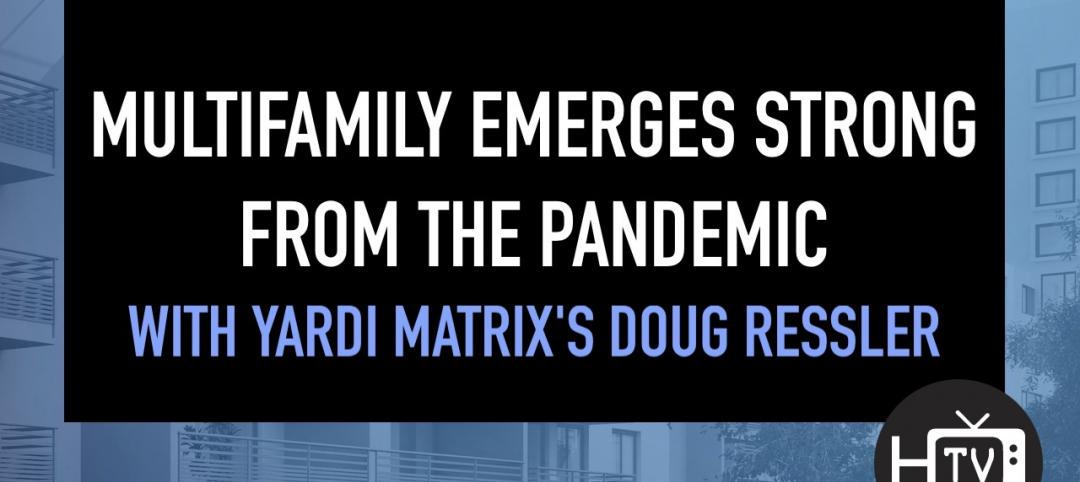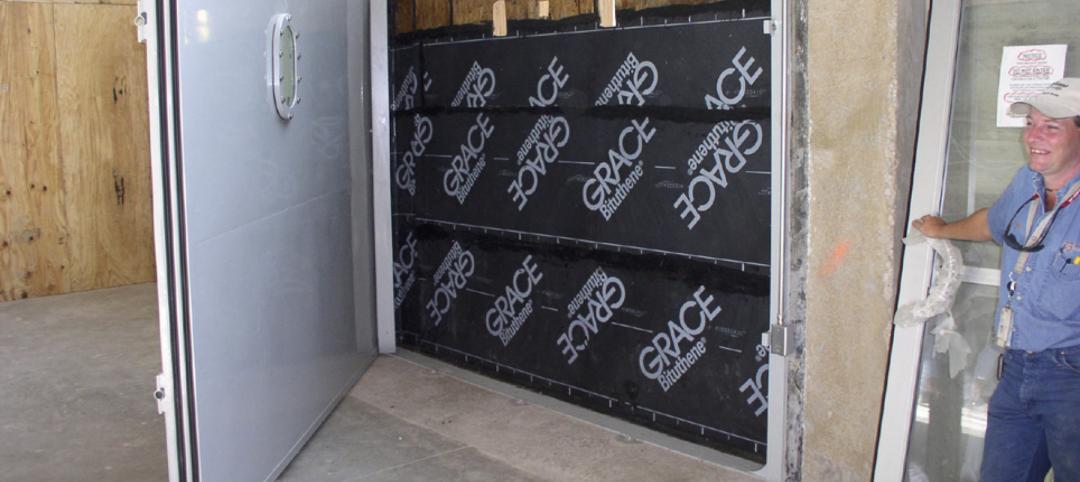Predictions that multifamily housing construction would taper off in 2015 may have underestimated the ongoing demand for this kind of housing, the vast majority of which is being marketed as rentals.
Seasonally adjusted annualized starts for structures with five or more units rose to 476,000 in June, an 18-year high, according to Commerce Department estimates released a few days ago. That number was 28.6% higher than the annualized multifamily starts rate in May, and 55% higher than the comparable number in June 2014.
Perhaps more significant is the fact that multifamily continues to propel most of the housing sector’s current growth. While annualized single-family starts in June, at 685,000 units, were 14.7% ahead of June 2014, they actually declined by 0.9% compared to May 2015.
“The multifamily gains this month are encouraging and show that the millennial generation continues to be drawn to the rental market,” said Tom Woods, a home builder from Blue Springs, Mo., who is chairman of the National Home Builders Association (NAHB).
All told, the year-over-year annualized rate for all starts was up 26.6% in June to 1,174,000 units.
The NAHB/Wells Fargo Housing Market Index, which tracks Builder Confidence levels, hit 60 in July. The Index also revised its June level to 60. The last time this Index got this high was November 2005.
If permit activity is a gauge of future optimism about demand, builders remain solidly behind multifamily. The annualized rate in June for permits issued for structures five or more units was up 79% to 621,000 units, compared to June 2014. Single-family permits, on the other hand, were up 6% to 687,000, according to Commerce’s estimates. All told, annualized new-home building permits jumped 30% to 1,343,000.
The latest annualized data show that 500,000 structures with five or more units were under construction in June, 20.5% more than in June 2014; and 317,000 units were completed, a 17.9% gain.
David Crowe, NAHB’s chief economist, noted that while the starts and Builder Confidence numbers were positive signs, he cautioned that builders “still face a number of challenges, including shortages of lots and labor.”
Related Stories
Multifamily Housing | Sep 22, 2021
11 notable multifamily projects to debut in 2021
A residence for older LGBTQ+ persons, a P3 student housing building, and a converted masonic lodge highlight the multifamily developments to debut this year.
Multifamily Housing | Sep 1, 2021
Top 10 outdoor amenities at multifamily housing developments for 2021
Fire pits, lounge areas, and covered parking are the most common outdoor amenities at multifamily housing developments, according to new research from Multifamily Design+Construction.
Giants 400 | Aug 30, 2021
2021 Giants 400 Report: Ranking the largest architecture, engineering, and construction firms in the U.S.
The 2021 Giants 400 Report includes more than 130 rankings across 25 building sectors and specialty categories.
Multifamily Housing | Aug 30, 2021
366-unit multifamily community breaks ground San Jose
KTGY designed the project.
Multifamily Housing | Aug 27, 2021
ODA completes West Half, its first D.C. project
The project is located in Washington, D.C.’s Navy Yard.
Multifamily Housing | Aug 26, 2021
Luxury residential tower breaks ground in Downtown Phoenix
The tower will rise 26 stories.
Multifamily Housing | Aug 19, 2021
Multifamily emerges strong from the pandemic, with Yardi Matrix's Doug Ressler
Yardi Matrix's Doug Ressler discusses his firm's latest assessment of multifamily sales and rent growth for 2021.
Resiliency | Aug 19, 2021
White paper outlines cost-effective flood protection approaches for building owners
A new white paper from Walter P Moore offers an in-depth review of the flood protection process and proven approaches.
Senior Living Design | Aug 13, 2021
Designing with dignity for senior living, with Mike Rodebaugh, LEO A DALY
In this exclusive interview for HorizonTV, Mike Rodebaugh, AIA, Senior Living Sector Leader with LEO A DALY, describes how his firm applies "hospitality magic tricks" in its senior living communities, using design to lend dignity to residents, staff, and residents' families and social circles.


